QuestionHi Chrys,
I recently purchased a hand-fed male parrotlet about 3 weeks ago from a breeder. I think he's around 6 months old. He's adjusted well to his cage and toys, but has become very aggressive towards me. He's pretty wild when I try to pick him up in the cage and will try to fly off if I don't nestle him in my hands. If he gets out of my hands and flies to the floor, I reach down to pick him up and he immediately fully spreads his wings, fluffs every feather and attacks me with no release. I tell him NO as I flick his beak (lightly of course). He's bit me so many times in this matter. I've started working on the up command in a small room where he cannot get away easily. If he's on one finger and I try to pet him with the other (around his head and back), he'll start to fluff up and even growl. I don't understand what's happening - and I'm not sure what to do, how to correct it. Is this behavior normal...especially in a male? I can't continue to be attacked, my hands hurt all over. I researched the breed and read that parrotletts have wonderful personalities, very loveable, and do take some work. What can I do to correct this attaching behavior? I'd greatly appreciate your help!
AnswerHi, Allison. Thanks for posting.
Biting in caged birds is a learned behavior. In other words, your parrotlet has learned that biting gets him what he wants, so he continues to do it!
First of all, 3 weeks isn't a very long time for your parrotlet to have become used to you and his new environment in your home. Perhaps he needs more time to adjust. Moving can be very stressful for a parrot. Second, I'm wondering how tame your parrotlet really was when you purchased him. They usually wean at about 6-8 weeks of age, but if they aren't handled/interacted with on a daily basis after being weaned, especially if they are around other parrots, they can lose some tameness. Next, are both of his wing flight feathers clipped? This will help keep him tame...he won't be able to escape from you easily and will depend on you for mobility. Also, most parrots do not like to be picked up around their bodies, some don't like to be petted at all, and most don't like intrusions into their cages. Picking parrots up around their bodies leaves them defenseless...something they hate. They have to maintain their ability to fly (fight or flight response) and if their wings are covered by your hands, they can't fly. Similar situation with being petted...some parrots don't like this because it can interfere with their ability to fly and because predators attack birds from behind. Their cage is their security, their private domain, their safety zone...it's best to coax him out of the cage (so he comes out on his own) OR teach him to step up on your finger or on a perch to be brought out of his cage.
What do you do when your parrotlet bites/attempts to bite? Do you pull your hand back? If so, you are actually teaching your parrotlet that if he bites/attempts to bite, you'll leave him alone. This is what he wants you to do. This could be why he behaves like he does. You need to be very clear to your parrotlet about what is/isn't acceptable behavior. When your parrotlet does what you want him to do, you must reward him each and every time (give him a treat). However, never reward negative behavior (don't look at him or anything else). However, you must respect his space, give him his privacy when he needs it, etc. In other words, you have to teach him right from wrong, don't let him control you, etc., but, at the same time, he has to have time to be by himself to eat, play, preen, nap, and do other things parrots do every day. Set certain times every day to interact with your parrotlet so he can tend to what he needs to do at other times (parrots love routine). You're doing good by taking him into a neutral room without his cage to work with him, but he needs his wings clipped so he can't get away from you. You need to work on mutual trust...you can do anything with a parrot who trusts you. Don't forget that it still may be too early from the move to expect too much from him. Slow things down a bit, give him time to settle in to his new surroundings, and take things gradually. When he flies to the ground, get down on the ground with him and interact with him from there. Most parrots are frightened to be on the ground...they are vulnerable down there...they prefer to sit on the highest perch/item in an area. This is most likely why he behaves the way he does toward you when he's on the ground.
Come back if you need to.
Chrys

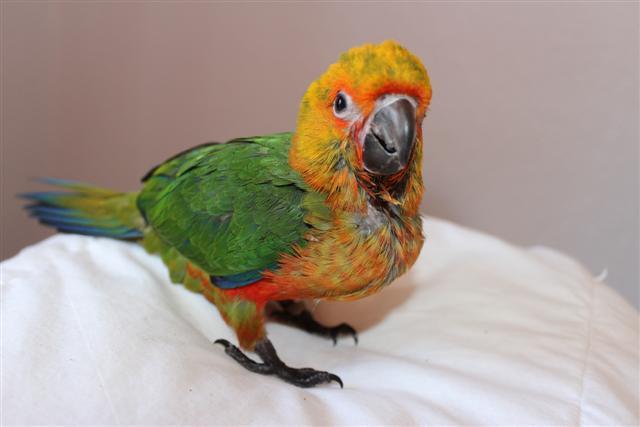 Jenday Conure Weaning?
Question
Castor the Conure
Hi
I have a 9 week o
Jenday Conure Weaning?
Question
Castor the Conure
Hi
I have a 9 week o
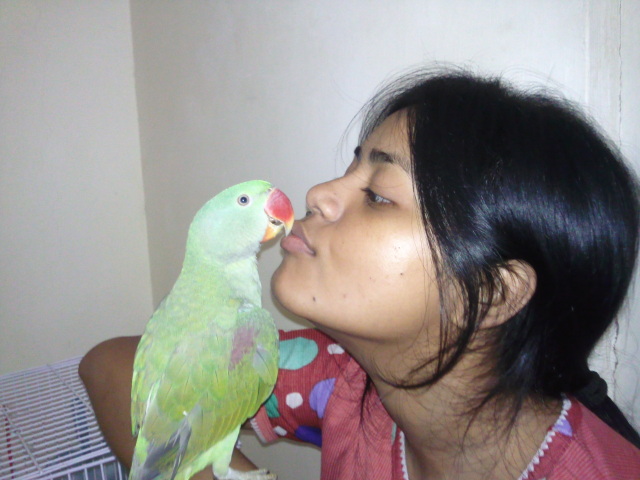 can i give my parrot chole(chana) called in hindi
Question
my little chaddi alexa
dear sir,
can give chan
can i give my parrot chole(chana) called in hindi
Question
my little chaddi alexa
dear sir,
can give chan
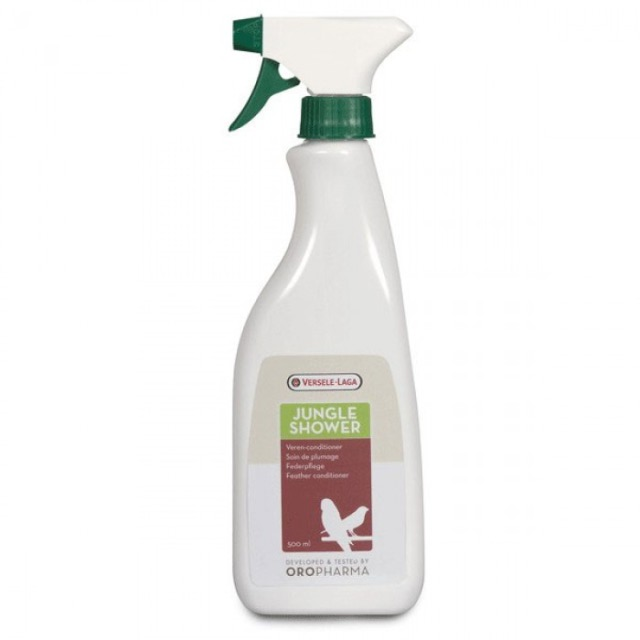 Indian Ringneck Health Issue
QuestionI have an Indian Ringneck who had been neglecte
Indian Ringneck Health Issue
QuestionI have an Indian Ringneck who had been neglecte
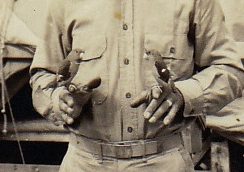 ID Birds
Question
Panama Birds
My uncle served in Panama in 1941
ID Birds
Question
Panama Birds
My uncle served in Panama in 1941
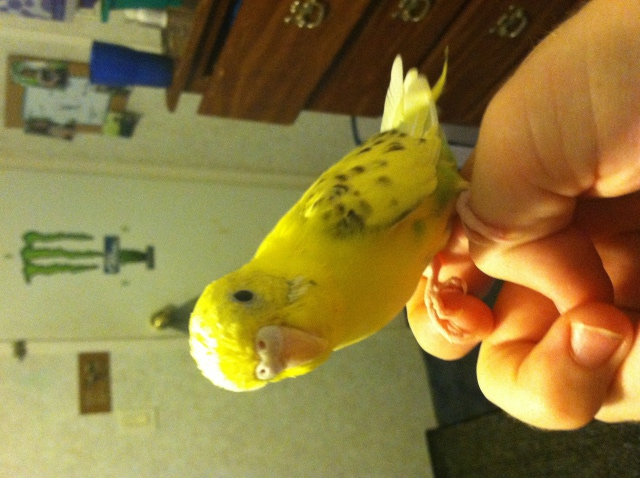 Parakeet gender
Question
Parakeet
Hi, I looked for an expert und
Parakeet gender
Question
Parakeet
Hi, I looked for an expert und